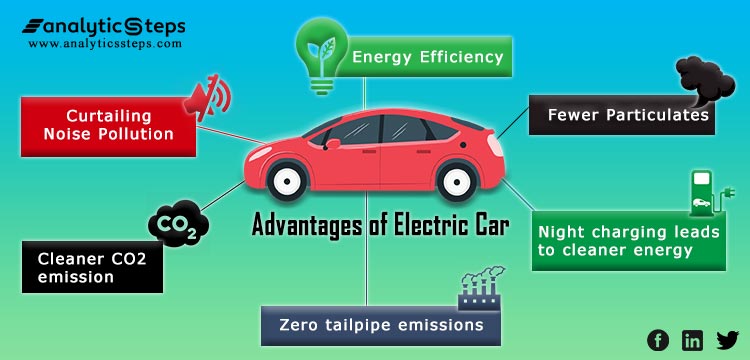Benefits of Electric Vehicles on the Environment
Electric vehicles (EVs) have gained significant popularity in recent years as a sustainable and eco-friendly alternative to traditional gasoline-powered vehicles. As the world becomes more conscious of the environmental impact of transportation, the benefits of electric vehicles on the environment are becoming increasingly evident. In this article, we will explore the various advantages of electric vehicles and how they contribute to a greener future.
Reduced Greenhouse Gas Emissions
One of the key benefits of electric vehicles is their significant reduction in greenhouse gas emissions. Unlike conventional vehicles that rely on internal combustion engines, EVs operate on electric motors powered by rechargeable batteries. As a result, they produce zero tailpipe emissions, effectively reducing the release of harmful pollutants such as carbon dioxide (CO2), nitrogen oxides (NOx), and particulate matter into the atmosphere. This reduction in emissions plays a crucial role in mitigating climate change and improving air quality in urban areas.
Energy Efficiency
Electric vehicles are highly energy-efficient compared to their gasoline counterparts. Traditional internal combustion engines are known for their low efficiency, with a significant portion of the energy generated being lost as heat. In contrast, electric motors are much more efficient, converting a higher percentage of the energy stored in the battery into actual power to propel the vehicle. This increased efficiency translates into less energy wastage and reduced reliance on fossil fuels, making EVs a more sustainable mode of transportation.
Renewable Energy Integration
EVs provide an excellent opportunity for the integration of renewable energy sources into the transportation sector. As the world shifts towards cleaner and greener energy production, electric vehicles can serve as a means to store and utilize renewable energy effectively. By charging EVs using electricity generated from renewable sources such as solar or wind power, we can further minimize the carbon footprint associated with transportation. This synergy between electric vehicles and renewable energy promotes a more sustainable energy ecosystem.
Noise Pollution Reduction
Another advantage of electric vehicles is their contribution to reducing noise pollution. Traditional combustion engines are notorious for their noise levels, especially in densely populated areas. In contrast, electric motors operate silently, resulting in a quieter driving experience. This reduction in noise pollution not only benefits the occupants of the vehicle but also contributes to a more peaceful and harmonious urban environment.
Financial Incentives
In addition to their environmental benefits, electric vehicles often come with various financial incentives that make them an attractive option for consumers. Governments and local authorities worldwide offer incentives such as tax credits, rebates, and subsidies to promote the adoption of electric vehicles. These incentives help offset the higher initial purchase cost of EVs and make them more affordable for consumers. Furthermore, the lower operating and maintenance costs of electric vehicles compared to conventional vehicles contribute to long-term savings for owners.

Electric vehicles offer numerous benefits to both the environment and consumers. Their ability to reduce greenhouse gas emissions, improve energy efficiency, integrate renewable energy, reduce noise pollution, and provide financial incentives make them a compelling choice for a sustainable future. As we continue to prioritize environmental conservation, the widespread adoption of electric vehicles can play a pivotal role in mitigating climate change and creating a cleaner, greener world.
Frequently Asked Questions
1. How do electric vehicles benefit the environment?
Electric vehicles produce zero tailpipe emissions, reducing air pollution and improving air quality.
2. Do electric vehicles contribute to reducing greenhouse gas emissions?
Yes, electric vehicles produce lower greenhouse gas emissions compared to traditional gasoline-powered vehicles, especially when charged with renewable energy sources.
3. Are electric vehicles quieter than traditional vehicles?
Yes, electric vehicles are generally quieter than internal combustion engine vehicles, resulting in reduced noise pollution in urban areas.
4. Can electric vehicles help combat climate change?
By reducing greenhouse gas emissions and dependence on fossil fuels, electric vehicles play a significant role in combating climate change.
5. Do electric vehicles require less maintenance than gasoline-powered vehicles?
Yes, electric vehicles have fewer moving parts and don’t require oil changes, resulting in lower maintenance costs and time.
6. Are there any financial incentives for purchasing electric vehicles?
Many countries and states offer incentives such as tax credits, rebates, and reduced registration fees to promote the adoption of electric vehicles.
7. Can electric vehicles help reduce dependence on foreign oil?
As electric vehicles primarily rely on electricity, they reduce dependence on imported oil, enhancing energy security.
8. Are there any health benefits associated with electric vehicles?
Electric vehicles eliminate tailpipe emissions, which can improve respiratory health and reduce the risk of respiratory diseases.
9. Can electric vehicles be charged using renewable energy sources?
Yes, electric vehicles can be charged using renewable energy sources such as solar or wind power, making them even more environmentally friendly.
10. Are electric vehicles more energy-efficient compared to gasoline-powered vehicles?
Electric vehicles are generally more energy-efficient, converting a higher percentage of energy from the grid to power at the wheels compared to internal combustion engines.




